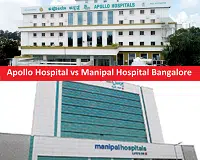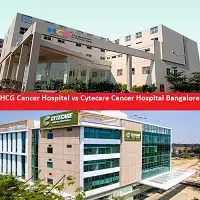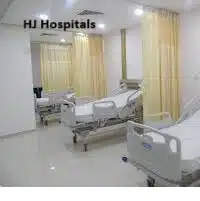
Nephrology Surgery in Kenya
Are you suffering from chronic kidney diseases and searching for nephrology surgery in Kenya? Chronic Kidney disease is associated with untimely mortality, reduced quality of life, and increased nephrology surgery costs in Kenya. As a result, there has been a surge in nephrology surgery in Kenya. In addition, many governments and private hospitals for nephrology surgery in Kenya have set up Kidney renal units because of the high patient demand.
The best hospital in nephrology in Kenya will assist in research, training, and clinical and preventive services in urology and nephrology. Nearly 4 million Kenyans have some form of kidney damage. About 8,000 kidney patients are on dialysis sessions at hospitals in Kenya, and each patient spends Sh5,000 per session. The treatment of nephrology surgery cost in Kenya is between Sh7,500 and Sh9,000 per sitting at private hospitals. Top hospitals of nephrology surgery cost in Kenya about Sh2 million for each kidney transplant outside the insurance (NHIF) cover.
In Kenya, it is currently estimated that 10,000 people develop end-stage renal disease, out of which only 1,000 have access to health care. Of these, only 250 undertake dialysis at Kenya hospital; about 50 receive transplantation yearly. If kidney disease is noticed early and managed properly, the damage to kidney function can be reduced or even stopped. To have a healthy kidney seek nephrologists who treat kidney disorders. At expertchikitsa.com, you can find the best nephrology surgery cost in Kenya for chronic kidney diseases.
Nephrology Surgery Cost in Kenya
The nephrology surgery cost in Kenya includes kidney transplantation costs Sh250,000-Sh3 million in Kenya, depending on the hospital. At the same time, private hospitals offer dialysis at Sh9,500 per sitting under NHIF cover. In comparison, NHIF pays Sh9,000 per patient per dialysis sitting price and Sh500,000 for a kidney transplant at private hospitals in Kenya.
Patients with kidney failure frequently need almost two to three dialysis sessions in Kenya. The per sitting price is around Sh5,000 in public hospitals and double as much in private facilities in Kenya. Kidney dialysis is done in leading public hospitals in Nairobi, Mombasa, Kisumu, Nakuru, and Eldoret.
| Nephrology Surgery in Kenya | Average Cost in USD | Average Cost in Kenya Shilling (KES) |
| Endopyelotomy | $3,500 | Ksh 420,000 |
| Haemodialysis | $3,000 | Ksh 360,000 |
| Kidney Transplant | $18,000 | Ksh 2,160,000 |
| Kidney Tumor | $8,000 | Ksh 960,000 |
| Nephrectomy | $3,800 | Ksh 456,000 |
| Pyeloplasty | $4,500 | Ksh 540,000 |
| RIRS Surgery | $3,200 | Ksh 384,000 |
| Renal Angiography | $4,500 | Ksh 540,000 |
| Renal Angioplasty | $4,800 | Ksh 576,000 |
What is Nephrology?
Nephrology is a domain of internal medicine that studies the kidney and its disorders. It covers the diagnoses, treatment, and management of kidney functions (renal physiology) and renal (kidney) replacement therapy, like dialysis and kidney transplantation.
Causes of Nephritis and Kidney Disorders
Causes of Nephritis and kidney disease mostly appear to be hereditary, which shows a potential genetic factor. However, some infections, like HIV and hepatitis B or C, can also is the reason behind nephritis.
Kidney damage can often happen due to taking medications like antibiotics. This damage caused by antibiotics leads to nephritis. While taking too many pain killers, nonsteroidal anti-inflammatory drugs (NSAIDs), or diuretic pills can also result in this condition.
Who are Nephrologists?
A nephrologist specializes in and treats kidney diseases. In addition, Nephrologists cure overall conditions affecting kidneys, for example, diabetes and autoimmune disease, hypertension (high blood pressure), and electrolyte disturbances.
Which Medical Conditions do Nephrologists Treat?
Nephrologists cure conditions that involve or affect the kidneys, both directly and indirectly.
Some common conditions a nephrologist helps in treating are:
-Advanced or chronic kidney illness
-Glomerular conditions, like glomerulonephritis and nephrotic syndrome
-Tubulointerstitial kidney diseases
-Tubular imperfections
-Kidney vascular defects, like renal artery stenosis
-Infections in the kidneys
-Kidney neoplasms, or irregular growths
-Structural or functional aberrations of the kidney, bladder, or urine collection system, like nephrolithiasis
-High blood pressure
-Vasculitis
-Autoimmune diseases that involve the kidneys
-Electrolyte, fluid, and acid-base imbalances or disorders
-Some metabolic disorders includes diabetes
Types of Nephrology Surgery in Kenya
-Endopyelotomy: Endopyelotomy uses to relieve obstruction in the middle of the joint at the kidney, ureter, and the kidney. The tools are used to eliminate the tissue that obstructs by cutting or burning it away and by putting a laser. In addition, endopyelotomy aims to widen the renal pelvis by injecting small instruments via the urinary tract and the kidney. Endopyelotomy surgery cost in Kenya is Ksh 420,000($3,500).
-Haemodialysis: Hemodialysis is a technique where a dialysis machine and a special filter known as an artificial kidney or a dialyzer are applied to clean the blood. To obtain the blood in the dialyzer, the doctor needs to enter the blood vessels by minor surgery, generally in the arm. Haemodialysis cost in Kenya is Ksh 360,000 and $3,000.
-Kidney Transplant: A kidney transplant is an operation to exchange a damaged kidney for a healthy kidney from a donor. They can take the kidney from a dead organ donor or a living donor. Family members and other people who are a good match can give one of their kidneys. This kind of transplant is referred to as a living transplant. At the same time, people who donate a kidney can live healthy lives with one kidney. This treatment helps you live longer with chronic kidney disease or end-stage renal disease. Kinds of kidney transplants are deceased-donor, Living-donor, and preemptive kidney transplants. Kidney Transplant cost in Kenya is Ksh 2,160,000 and USD 18,000.
-Kidney Tumor: Kidney tumors are also called renal tumors. These are growths in the kidneys that may be benign or cancerous. A tumor grade says how damaging the cancer cells in your body are. While a tumor stage states how much cancer has developed in the kidney. Grades 1 – 4 display a rise in severity, with one being the lowest level and four being the highest. A higher grade and more progressive stage usually come with a large tumor size and more invasive tumors. The size of a tumor helps evaluate the danger of cancer growth. It is treated through active surveillance, ablation, and partial and radical nephrectomy. A Kidney tumors surgery price in Kenya is Ksh 960,000, whereas $8,000.
-Nephrectomy: A nephrectomy is a surgical procedure to remove a kidney. A surgeon can perform a partial nephrectomy to separate only a part of the kidney. Whereas in radical nephrectomy, the surgeon takes out the entire kidney. A nephrectomy can be a life-saving process if a patient diagnoses with kidney disease or cancer. The nephrectomy surgery cost in Kenya is Ksh 456,000 and $3,800.
-Pyeloplasty: Pyeloplasty is an operation to correct a disorder called ureteropelvic junction (UPJ) obstruction. “Pyelo” denotes the kidney (renal pelvis). “Plasty” is a surgical process that repairs and brings back changes. A pyeloplasty is a kind of surgery that restores the ureter (a tube that connects to the kidney and bladder. These include the Y-V, Inverted’ U’, dismembered types of pyeloplasty, and Culp’s pyeloplasty. Pyeloplasty surgery price in Kenya is Ksh 540,000 while $4,500.
-RIRS Surgery: RIRS is a fiberoptic endoscopic surgical procedure that allows viewing the kidney from the ureter while operating. A flexible ureteroscope is used for such types of processes. Via this tool, a laser fiber (Holmium laser) is employed to treat the stones into fine particles. The surgery is typically done in general or spinal anesthesia. RIRS surgery price in Kenya is Ksh 384,000($3,200).
-Renal Angiography: Renal angiography is an imaging test utilized to examine the blood vessels in your kidneys. The process is done via a thin, elastic tube named a catheter. The catheter is inserted into a blood vessel via a tiny cut or opening. The X-ray dye injected makes the blood vessels easy to view on X-ray images. Then, X-rays are then taken. The method is mostly done by a specifically skilled doctor called an interventional radiologist and uses a minimally invasive image-guided process to identify and treat diseases. Renal angiography surgery cost in Kenya is Ksh 540,000 and $4,500.
-Renal Angioplasty: A renal angioplasty is a procedure where a blockage is repaired in the renal artery, the vital blood vessel to the kidney, without any operation. A fine plastic tube termed a catheter is put through an obstruction in an artery, and a special balloon is inflated on the catheter to open up the block and let more blood flow via it. Kidney arteries usually need the insertion of a small hollow tube called a stent to have it open after the process. Renal angioplasty surgery cost in Kenya is Ksh 576,000($4,800).
What Procedures and Tests do Nephrologists Perform?
-Laboratory tests usually are done on either a blood or urine sample.
-Blood tests include Glomerular filtration rate (GFR), Serum creatinine, and blood urea nitrogen (BUN), whereas urine tests are Urinalysis, Albumin/creatinine ratio (ACR), 24-hour urine collection, and creatinine clearance. In addition, a nephrologist may also carry out and work with other experts on the following process:
-imaging tests of the kidneys, like ultrasounds, CT scans, or X-rays
-dialysis, such as placement of the dialysis catheter
-kidney biopsies and transplants
Symptoms of Nephrology (Kidney Disorders)
Symptoms are as follows:
-Changes in urination
– Feeling tired or weak
– Dry and itchy skin
– Swelling in your hands, legs, or feet
– Shortness of breath
– Pain in your back
-Loss of appetite
-Puffiness around your eyes
-Irregular levels of minerals like phosphorus, calcium, or vitamin D
-Abnormal urine test
-High blood pressure
Advantages and Disadvantages of Nephrology Surgery
Advantages are:
-A kidney transplant increases your quality of life, and survival rates are a better advantage over dialysis.
-a patient can manage their daily activities
-Less dietary limitations
-Fewer hypertension tablets
Disadvantages are:
The short-term risks of kidney surgery such as
-Reactions to anesthesia
-Too much bleeding (which might need blood transfusions), blood clots
-infections
-pain after the operation
Summary of Nephrology Surgery in Kenya
If you have kidney malfunction, mainly due to chronic health problems, have an appointment and talk to the nephrologists. Kidney disorders can grow from prevailing health problems like diabetes, obesity, heart disease, and high blood pressure.
Chronic kidney disease can also lead to other health difficulties such as anemia, osteoporosis, a weak immune system, and an irregular heartbeat. As a result, it is vital to have healthy kidneys and to be active in getting in touch with a nephrologist who can cure and control any kidney disorders you have. Life expectancy on dialysis Varies depending on other medical conditions and how well you follow your treatment plan.
FAQs of Nephrology Surgery in Kenya
-How long can anyone live with a kidney transplant?
The average life expectancy of a patient for dialysis is usually five years. In comparison, patients who have a kidney transplant live longer than those who have taken dialysis. While an alive donor kidney functions, on average, for 12 to 20 years, and a departed donor kidney for 8 to 12 years.
-Can a person live with one kidney?
One kidney can filter adequate blood to maintain your body function, and one can survive and be healthy with only one kidney.
–What is the Kidney transplant age limit?
Currently, the patients who have developed end-stage renal disease (ESRD) and are qualified for kidney transplantation are between 45 and 65 years of age.
-Who is not eligible for a kidney transplant?
Individuals with life-threatening diseases or problems that cannot recover with transplantation, such as cancers, infections that cannot cure, or severe heart disease.
–Can a male person give a kidney to a female person?
In some special situations, male donors to females receiving kidney transplants can be successful. In contrast, female donors to male beneficiaries are not recommended, particularly in old-aged patients with a history of dialysis.






